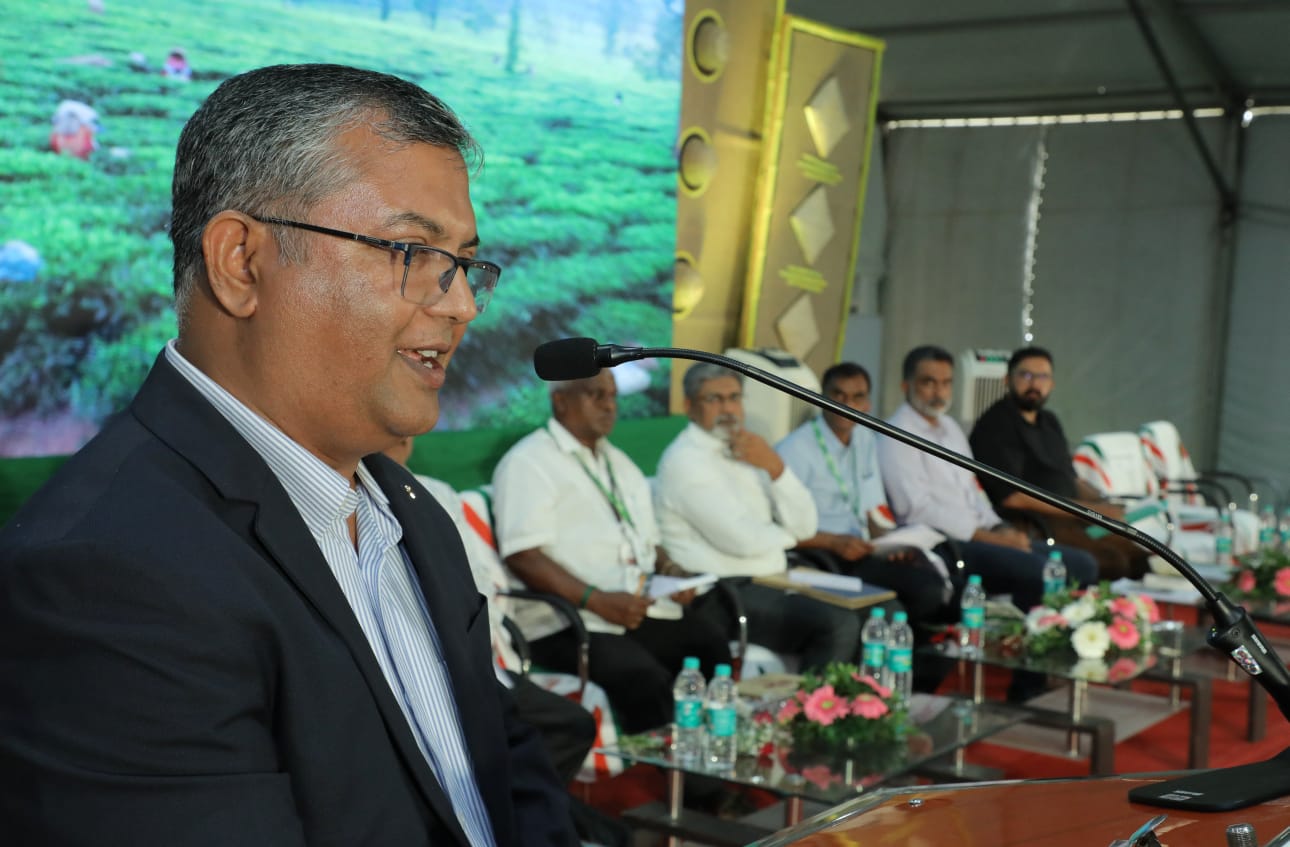Prudent interventions can stem the slide in plantation: symposium
Kochi / January 21, 2024
Kochi, Jan 21: Faced with the problems of declining yields and high wages that are pushing costs of production in plantations, the Kerala government needs to salvage this vital sector through a string of prudent administrative interventions that would inspire confidence among the planters and generate employment opportunities, according to experts.
A change in climate which the state is experiencing more evidently after the 2018 floods warrants urgent administrative steps to sustain Kerala’s natural suitability for plantation, they said at an ongoing national event.
Authorities must reach out to inspire confidence in the planters, the speakers noted at a symposium at the three-day Kerala Plantation Expo, which will conclude on Monday. Regular workshops must be a feature of the mentoring, they said at the interaction held after the inauguration of the expo on Saturday evening by the Plantation Directorate under the State Industries Department in the city.
Giving more thrust on employment generation, the administration must not discriminate between big and small growers, top officials noted at the two-hour session on ‘Challenges and Opportunities in Plantation Sector’.
Mr Ashutosh Sarkar of Indian Institute of Management-Kozhikode recalled that plantation sector was a revenue-earner and job-generator for Kerala before it began facing a difficult phase over the past decade. “Planters should be able to go for their choice of crops,” he said, addressing the gathering at Jawaharlal Nehru Stadium in Kaloor. “They must also go for diversification to make their venture profitable.”
The remarks, highlighting the need for stronger employment in the sector, come at a time when Prof Sarkar, along with colleague Venkataraman S., is heading an IIM-K study on ‘Diversification and Revitalisation of Kerala’s Plantation Sector’.
Upasi (United Planters Association of South India) President Mr C. Sreedharan, while calling for imports to be structured instead of unregulated, said Kerala’s production of rubber has slipped to six lakh tonnes today vis-à-vis eight lakh in 2013. “The crop has become un-remunerative over the years,” he noted, exhorting farmers to ‘Grow in India’ just as the government slogan of ‘Make in India’.
At the seminar moderated by Association of Planters of Kerala Technical Committee Chairman S.B. Prabhakar, Tea Board Deputy Director Falguni Banerjee said lack of soil conservation added to the travails of the growers along the Western Ghats, which forms four-fifth of the state’s plantation area and is eco-fragile. Citing a case that requires reform, he said, “Kerala’s cocoa is rated to be of good quality, but it doesn’t enjoy a corresponding market.”
Mr Nithin Joe of Spices Board said the productivity of cardamom in Kerala was double that of the neighbouring states, notwithstanding a rise in the cost of production also owing to dearth of labour. “There is also very limited mechanisation,” he noted.
Mr Mohammed Sadique of Rubber Board emphasised the need for genetically-modified varieties of the crop for the product to suit new-age demands. He also called for diversified intercrops to boost up income while also add to biodiversity.
Coffee Board Deputy Director Dr M. Karuthamani spoke of the activities related to research, market and quality promotion activities being carried out by the Bengaluru-headquartered body under the Union Ministry of Commerce and Industry.
The expo, which was inaugurated by state Industries Minister P. Rajeeve, is hosting an array of special business-to-business meets amid a grand showcase of the products and services in the sector. Entry is free, with the stalls open from 9 a.m. till 11 p.m.
The first edition of the Plantation Expo was held in Thiruvananthapuram in February 2023.
ENDS
Photo Gallery



